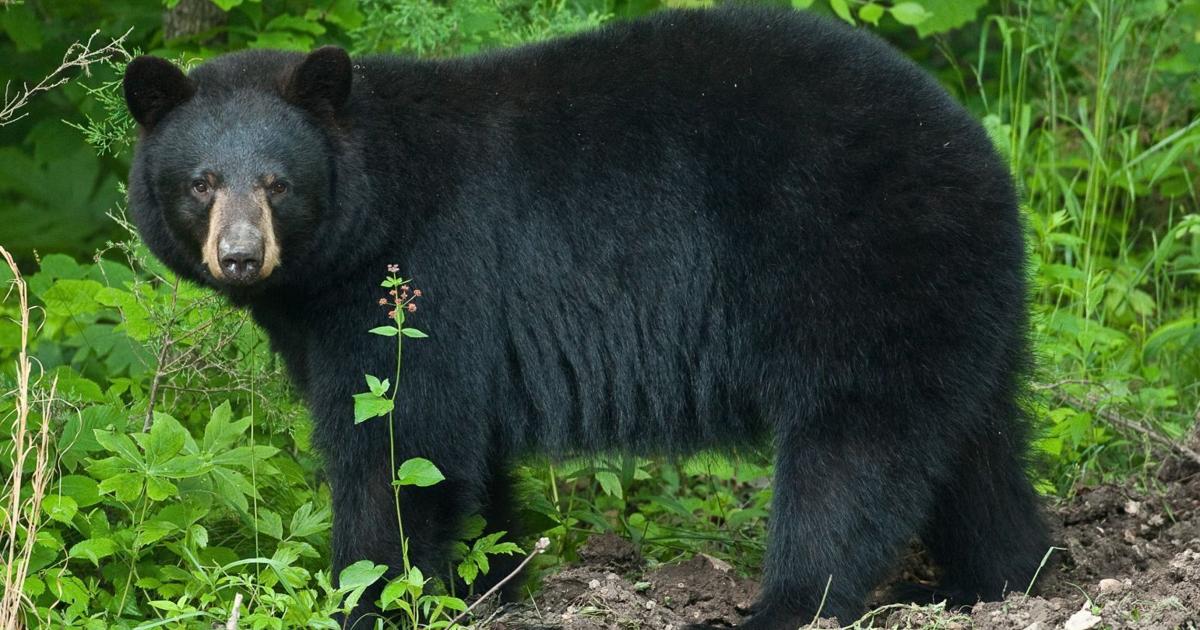
News
October 14, 2025
A bear hadn't killed a human in the Ozarks since 1892. Now it's happened twice in a month.
A 60-year-old Missouri resident was killed by a bear in Arkansas just a few weeks after another man's death at the hands of a bear.
**Ozark Region Grapples with Unprecedented Bear Attacks After Over a Century**
The Ozark region is reeling from the shocking news of a second fatal bear attack in just a month, shattering a long-held belief that such incidents were a thing of the past. Prior to this recent string of tragedies, the last recorded bear-related human death in the Ozarks occurred way back in 1892. The sudden resurgence of deadly encounters has left residents and wildlife officials searching for answers and grappling with newfound safety concerns.
The latest victim, a 60-year-old Missouri resident, was killed in Arkansas, marking another devastating blow to the community. The circumstances surrounding the attack are still under investigation, but the incident underscores the growing urgency to understand and address the factors contributing to this unexpected shift in bear behavior.
This follows the earlier death of another man, also attributed to a bear attack, just weeks prior. The details of the first attack remain limited, but the proximity of the two incidents has sparked widespread anxiety and fueled speculation about potential causes.
For over a century, the Ozark region enjoyed a relatively peaceful coexistence with its bear population. Black bears, the only species found in the area, are generally considered shy and reclusive animals, typically avoiding human contact. Encounters were rare, and fatalities even rarer. Now, the back-to-back tragedies have shattered this perception, forcing residents to reconsider their relationship with the local wildlife.
Wildlife officials are scrambling to determine what might be driving this shift in behavior. Possible explanations range from dwindling food sources forcing bears to venture closer to human settlements, to habituation – where bears lose their fear of humans due to repeated exposure to food sources like improperly stored garbage or intentional feeding. Another possibility being considered is an increase in the bear population itself, leading to greater competition for resources and increased interactions with humans.
The Arkansas Game and Fish Commission is expected to release more information in the coming days as investigations continue. In the meantime, residents are being urged to exercise extreme caution, secure food sources, and avoid approaching bears under any circumstances. The unexpected return of fatal bear attacks has cast a shadow over the Ozarks, highlighting the delicate balance between humans and wildlife and the importance of understanding and respecting the natural world.
The Ozark region is reeling from the shocking news of a second fatal bear attack in just a month, shattering a long-held belief that such incidents were a thing of the past. Prior to this recent string of tragedies, the last recorded bear-related human death in the Ozarks occurred way back in 1892. The sudden resurgence of deadly encounters has left residents and wildlife officials searching for answers and grappling with newfound safety concerns.
The latest victim, a 60-year-old Missouri resident, was killed in Arkansas, marking another devastating blow to the community. The circumstances surrounding the attack are still under investigation, but the incident underscores the growing urgency to understand and address the factors contributing to this unexpected shift in bear behavior.
This follows the earlier death of another man, also attributed to a bear attack, just weeks prior. The details of the first attack remain limited, but the proximity of the two incidents has sparked widespread anxiety and fueled speculation about potential causes.
For over a century, the Ozark region enjoyed a relatively peaceful coexistence with its bear population. Black bears, the only species found in the area, are generally considered shy and reclusive animals, typically avoiding human contact. Encounters were rare, and fatalities even rarer. Now, the back-to-back tragedies have shattered this perception, forcing residents to reconsider their relationship with the local wildlife.
Wildlife officials are scrambling to determine what might be driving this shift in behavior. Possible explanations range from dwindling food sources forcing bears to venture closer to human settlements, to habituation – where bears lose their fear of humans due to repeated exposure to food sources like improperly stored garbage or intentional feeding. Another possibility being considered is an increase in the bear population itself, leading to greater competition for resources and increased interactions with humans.
The Arkansas Game and Fish Commission is expected to release more information in the coming days as investigations continue. In the meantime, residents are being urged to exercise extreme caution, secure food sources, and avoid approaching bears under any circumstances. The unexpected return of fatal bear attacks has cast a shadow over the Ozarks, highlighting the delicate balance between humans and wildlife and the importance of understanding and respecting the natural world.
Category:
Politics